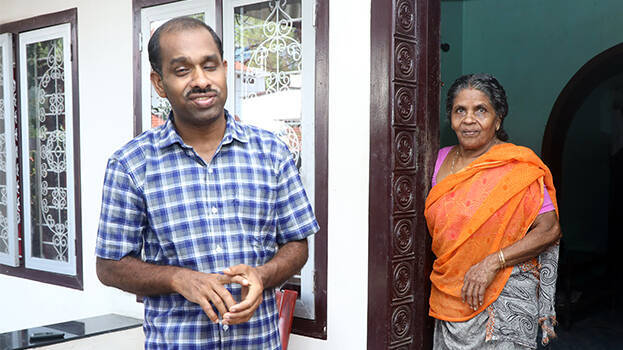

Sometimes, the government takes timely action on important matters. Once an order is issued, it must be implemented. A similar situation arose with Roopesh, an insurance officer at the Alappuzha Collectorate. Roopesh was transferred from the Revenue Recovery Office to the District Insurance Office located on the third floor of a building without a lift or other accessibility facilities.
Roopesh, who belongs to the first batch of KAS officers in Kerala, cleared the exam despite being blind. This achievement earned him the position of revenue recovery officer at the Alappuzha Collectorate a year ago. Since the Collectorate had lift facilities, commuting was easy for Roopesh. However, his recent transfer disregarded these considerations.
Several organisations and activists protested against Roopesh’s transfer, highlighting his struggle as a differently-abled officer. The State Human Rights Commission also intervened in the matter. A report on this transfer was published in 'Kerala Kaumudi', which drew attention to the issue. Consequently, authorities directed the preparation of a disability-friendly office for Roopesh. The decision to release Roopesh from his current office on the third floor should serve as a lesson for officials who issue transfer orders without considering their implications. The government has established guidelines for transferring disabled officers, but these were overlooked in Roopesh's case.
Roopesh lost his eyesight completely after facing vision issues starting in class 10. However, he persevered and earned a postgraduate degree along with SET certification. He ranked in the first KAS examination in the state. Roopesh also tried his hand at teaching for a while before being recruited into the KAS. He excelled in his role as a revenue recovery officer and received praise for his commendable service.
Transferring such a capable officer to an office on the third floor of an inaccessible building shows negligence on the part of superiors. Immediate action was needed to rectify this issue. Although Roopesh’s case was resolved, many differently-abled individuals are still denied justice. Authorities need to understand how their decisions affect the personal lives of differently-abled officers. Superiors must act with sensitivity and humanity rather than waiting for media coverage to address errors in their orders.